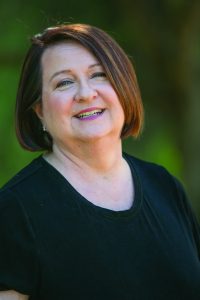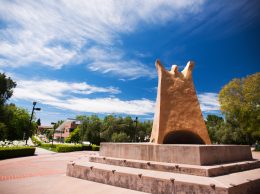
Loredana Carson
By Loredana Carson
International students planning to attend colleges and universities in the tri-county area may fear being unwelcome due to media coverage of negative comments, but once they arrive they are generally met with a lack of attention. Students in my classes have expressed dismay to me that they don’t often have the opportunity to discuss their home countries.
A class I teach at California Lutheran University explains to incoming international students how the American education system works. We discuss how no one can tell they are citizens of another country by looking at them because Americans come from all over the world and can look like any nationality or combination of ethnicities.
A group of students from China may not look any different than a group of high school students from Oak Park or Oxnard. I recently showed my international students a photo of the American comedian and actor Aziz Ansari and asked if they thought he was an international or domestic student. They all thought he was an international student. I showed the same photo to a group of local high school students and asked the same question. They laughed and knew exactly who he is.
Once an international student’s background is discovered through conversation, they can become a rich source of information for many segments of the population.
Business people can benefit from learning about cultural practices in the home countries of our students and, even more importantly, discover the regional distinctions that are crucial for doing business. What may have worked on one end of the continent may not work at all on the other side.
For instance, it is crucial to understand the distinction between Taiwan and mainland China. We have students from both countries and they can explain quite clearly how to avoid unintentional insult.
If given the opportunity to spend time with our international students, residents would get the benefit of contact with other cultures without leaving town. The interactions are of great value to the students, as well. All of the students attending local universities speak English and are hoping to get the opportunity to discuss life in the United States with actual Americans. In general, the friendships they form are with other international students, particularly those from their home country. I advise my students to set a goal for themselves of making at least one American friend while they are here; not a casual friend, but one whom they would invite to their home in their country.
To foster these connections, universities often set up clubs or activities. At Cal Lutheran, we have a Conversation Café that meets weekly and primarily attracts residents of University Village who come to help the international students practice English and to share experiences with them. The program, which is in its fourth year, has met with great success. And yet, there is a need for more exposure and more practice. The biggest loss is to the community, which stands to gain much in the way of cultural competencies. The students are ready for conversation and consultation. They are not looking to be paid for their knowledge; they are looking to share their culture. If you know anyone who would benefit from the insight the international students possess, drop me a line and I will find a suitable spot for them.
International student numbers are soft right now nationwide due in part to the political climate and the uncertainty regarding what is going to happen with immigration policies. While there may not be a lot we can do to personally impact federal policy, each local resident can do something to impact local enrollment. Every positive communication leaves a good impression and these add up to personal recommendations to friends and families back home to consider studying here in the tri-county area. Our schools are safe and welcoming and our communities are as well.
This is a win-win situation. The international students get an education and we gain global competency.
• Loredana Carson is a lecturer and academic adviser in the School of Management at California Lutheran University. For more information on the Conversation Café or other opportunities involving international students, contact her at carson@callutheran.edu or (805) 493-3002.






 Print
Print Email
Email

















